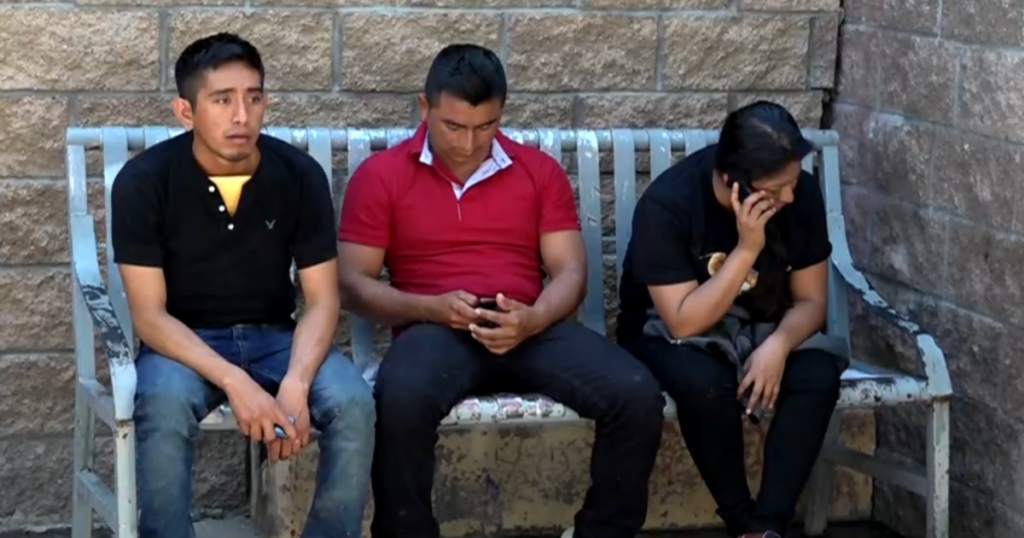The city of Nogales, Mexico, is a site where migrants deported by the U.S. are left feeling demoralized and disoriented as they ponder their next steps upon their return. Many, like Emmanuel from Mexico, had hoped to work in the U.S. to send money back to their families but were detained by U.S. border agents and sent back to Mexico. In fear of facing jail time if they attempted to reenter the U.S. unlawfully, many of the migrants are at a loss for what to do next.
Deportees arriving in Nogales often lack basic necessities, such as shoelaces, and have little to no belongings except for the standard clothing issued by U.S. Border Patrol. In an effort to assist the deportees, American volunteers offer them fruit and guidance on where to find shelter while they figure out their next steps. The deportees, including children, are often visibly distressed and in need of support as they navigate their sudden return to Mexico after being deported from the U.S.
The increase in deportations to Mexican border cities like Nogales is a result of President Biden’s executive action to limit access to the U.S. asylum system, especially for migrants who cross the southern border between legal entry points. The new rules have made it more difficult for migrants to seek asylum in the U.S. and have led to a sharp increase in deportations of migrants from Mexico and Central America. This has resulted in a significant drop in those being allowed to access the U.S. asylum system.
The restrictive asylum policy, combined with Mexico’s efforts to stop migrants and high summer temperatures, has led to a more than 75% decrease in illegal border crossings from peak levels seen in December. Despite this decline in border crossings, humanitarian workers like Rodriguez warn that the policy is turning away vulnerable people in need who are fleeing violence, gangs, and hunger. The stricter asylum rules may also drive migrants to attempt more dangerous border crossings in remote areas, putting their lives at risk.
For many migrants like Rosalis and her daughters, the future is uncertain after deportation. Despite the potential risks and the knowledge that they could be deported again, some migrants express a willingness to attempt to reenter the U.S. in search of safety and a better future. The stories of these migrants shed light on the complexities and challenges faced by those who are forced to navigate the harsh realities of immigration policies and border enforcement while seeking a better life for themselves and their families.


